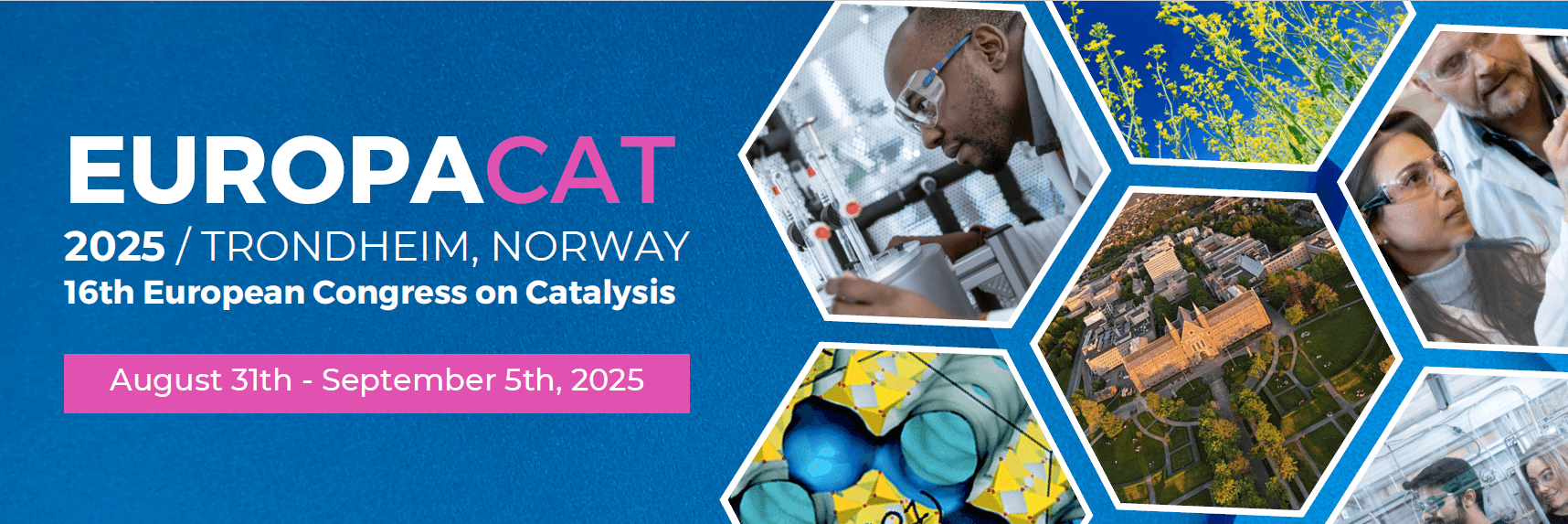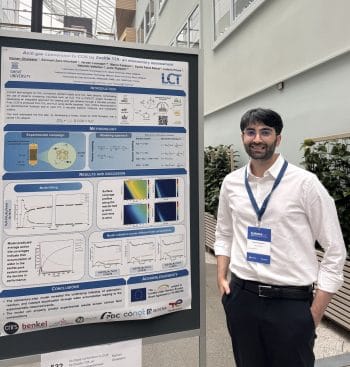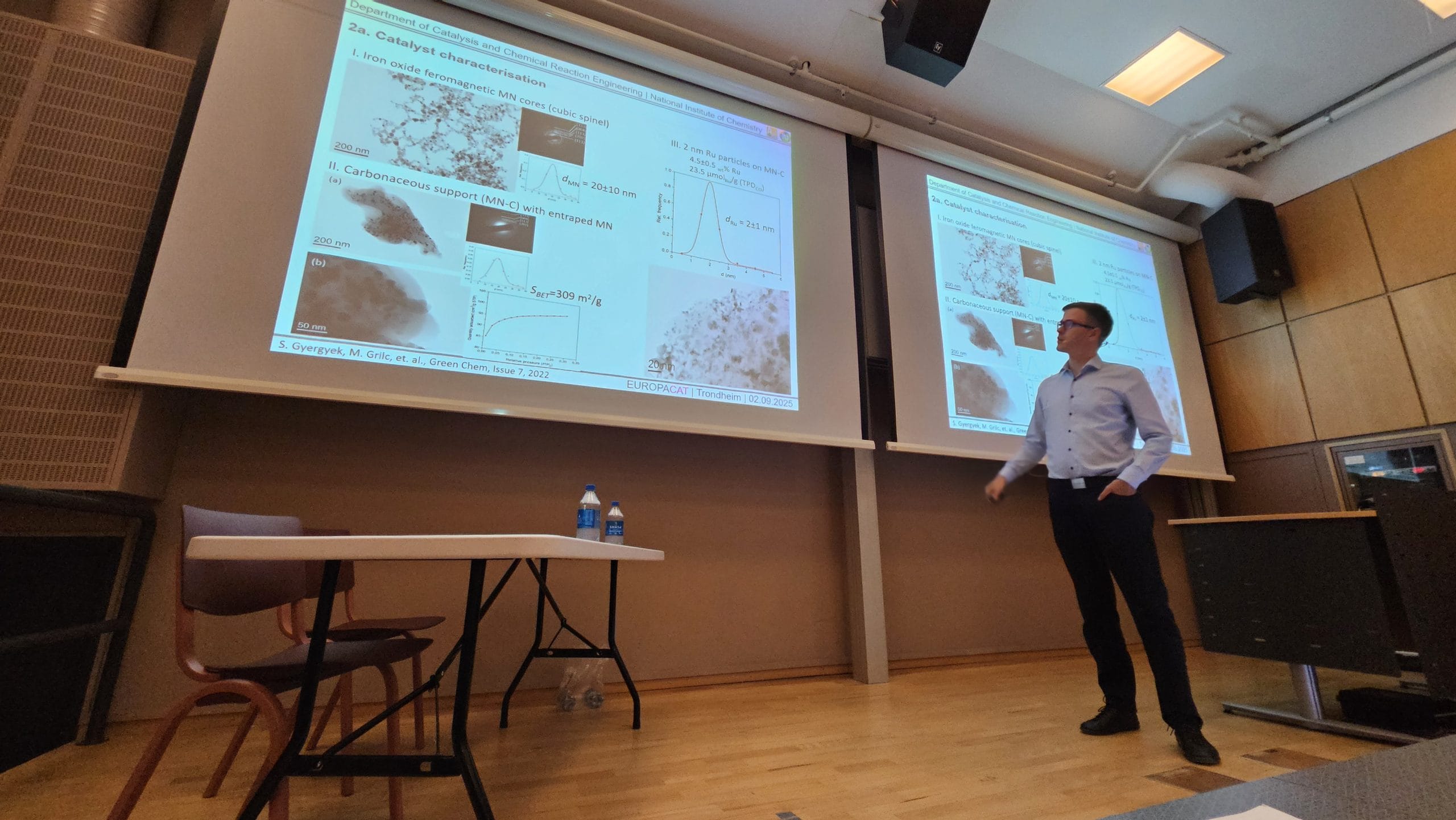
The Horizon Europe-funded projects e-CODUCT, EReTech, ēQATOR, TITAN and STORMING recently hosted a successful workshop at the 16th European Congress on Catalysis (EuropaCat 2025) in Trondheim, Norway. The event brought together more than 150 participants from academia, research and industry for three special sessions focussing on the electrification of catalytic reactions and reactors. Electrification is a key factor in the realisation of the European Green Deal.
Chaired by Prof Joris Thybaut (Ghent University) and Prof Patricia Benito Martin (University of Bologna), the sessions provided a forum for the latest technological developments and potential applications of electrification to reduce emissions, improve process performance and control and enable green chemistry.
As the e-CODUCT project is in the final phase of project implementation, we took the opportunity to present the latest research results to a broad scientific community and industry stakeholders.
Highlights from the sessions “Electrification of catalytic reactions and reactors”
The organisers of the workshop session “Electrification of catalytic reactions and reactors” received over 40 abstracts dealing with advances in energy optimisation and efficiency, novel reactor designs, challenges and innovative solutions for electrically powering catalytic reactions or the role of electrification in the decarbonisation of the chemical process industry. 19 contributions were selected, which resulted in three separate sessions (Electrification of catalytic reactions and Electrification of reactors (I, II)). The sessions provided a comprehensive insight into the latest development in this field, including:
Three presentations were given in the form of a lecture and two posters on the e-CODCUT research activities:


(left) Raman Ghassemi (UGENT) poster presentation ‘Acid gas conversion to COS by Zeolite 13X: an elementary assessment’; (right) prof. Miha Grilc (CO NOT) session presentation ‘Electrified pilot line for methanol synthesis and sulfur recovery from acid’
The diverse audience, which included scientists, PhD students, industry leaders and policy makers, underlined the broad recognition of the role of electrification in Europe’s green transition. As Prof Thybaut summed up the high attendance and dynamic discussions at EuropaCat 2025: “Electrification is no longer just a scientific curiosity – it is rapidly becoming a practical pathway for cleaner and more efficient chemical processes. The results presented at EuropaCat 2025 show that the transition from concept to industrial application is within reach.”
Visitors were able to meet the representatives of all sister projects at a joint booth. A video presentation of the participating projects is available.
16th European Congress on Catalysis – EuropaCat under the auspices of the European Federation of Catalysis Societies (EFCATS) was organized as a joint effort of the Nordic Catalysis Societies in Trondheim, Norway (31. Aug – 5. Sep 2025). The EuropaCat congress is the most important event in Europe for academic and research institutions and companies working in the field of catalysis. More than 1,200 scientists and professionals attending the congress to exchange knowledge, network and present the latest achievements in the field. The next 17th EuropaCat will take place in Ljubljana, Slovenia in 2027.